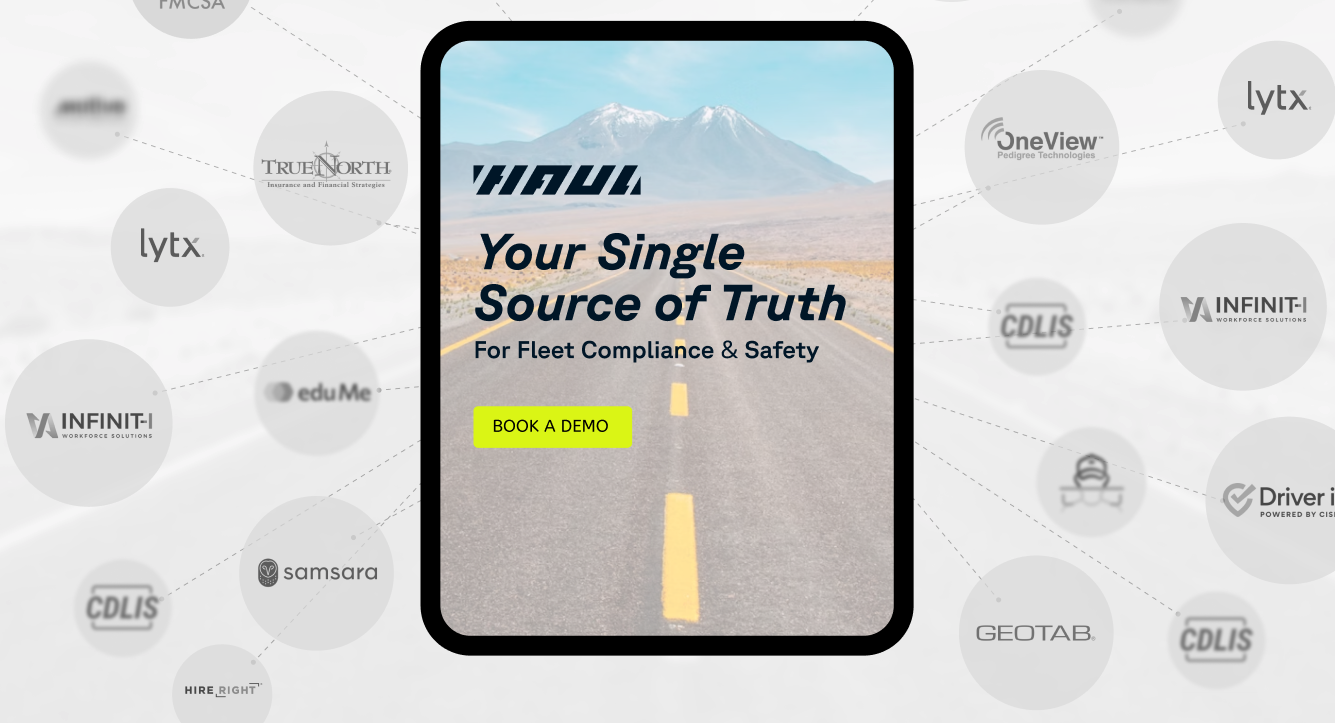Can I drive a truck without ELD?

In the world of trucking, the Electronic Logging Device (ELD) mandate has become a major topic. Many drivers, especially those new to the industry, often wonder if they can drive a truck without an ELD. The short answer is: it depends. Let's dive into the details and explore the various exemptions and requirements related to ELDs.
Understanding ELDs and Their Purpose

by Ivan Bandura (https://unsplash.com/@unstable_affliction)
ELDs are devices used to record a driver's hours of service (HOS) electronically. They replace traditional paper logs and are intended to ensure that drivers comply with federal HOS regulations, which are designed to improve road safety by preventing fatigue-related accidents. By automatically recording driving time, ELDs help maintain accurate records and reduce paperwork for drivers and carriers.
Are There Exemptions to the ELD Mandate?
Yes, there are several scenarios where drivers and trucks may be exempt from the ELD mandate. Understanding these exemptions is crucial for determining whether you can drive a truck without an ELD.
ELD Exemptions for Short-Haul Drivers
One of the most common exemptions is for short-haul drivers. If you operate within a 150 air-mile radius and return to your starting point each day, you may qualify for this exemption. These drivers must still maintain timecards, but they are not required to use ELDs.

Older Vehicles

by Nicole Geri (https://unsplash.com/@nicolegeri)
Trucks manufactured before the year 2000 are exempt from the ELD mandate. This is due to the difficulty of integrating ELD technology with older vehicle systems. If your truck's engine predates 2000, you won't need an ELD.
Driveaway-Towaway Operations
If you're involved in driveaway-towaway operations, where the vehicle being driven is the commodity, or you're transporting a motorhome or a recreation vehicle trailer, you are exempt from using an ELD.
Agricultural Operations
Drivers transporting agricultural commodities within a 150 air-mile radius from the source are exempt during planting and harvesting seasons. This exemption helps ensure timely delivery of essential goods.
Can Non-CDL Drivers Avoid Using an ELD?
Non-CDL drivers who operate within the short-haul exemption parameters are not required to use an ELD. However, if they exceed the 150 air-mile radius or drive beyond the 14-hour workday limit, they must comply with ELD requirements.
Owner-Operators and ELD Exemptions
Owner-operators who qualify for any of the above exemptions are not required to use ELDs. However, if an owner-operator does not meet exemption criteria, they must adhere to ELD regulations.
Using Paper Logs Instead of ELDs

by Jaredd Craig (https://unsplash.com/@jaredd)
Drivers who qualify for exemptions can use paper logs to record their hours of service. It's essential to ensure that your records are accurate and up-to-date, as they may be subject to inspection.
What Does the ELD Exemption Do for Drivers?
ELD exemptions offer drivers flexibility and relief from the costs and complexities associated with ELD implementation. They allow certain drivers to continue using traditional logging methods, which can be beneficial for specific operations and older vehicles.
ELD Compliance and Its Importance
While exemptions are available, it's important to understand the significance of ELD compliance. ELDs enhance safety by ensuring adherence to HOS regulations and reducing the risk of driver fatigue. They also streamline record-keeping and minimize paperwork, leading to more efficient operations.
Which Business Practices Exempt You from Using ELDs?
Certain business practices, such as operating within the short-haul exemption or using pre-2000 vehicles, may exempt you from ELD requirements. It's crucial for businesses to evaluate their operations and determine if they qualify for any exemptions.
ELD Mandate Exemptions: A Summary
In summary, ELD exemptions exist for specific scenarios and operations, including:
- Short-haul drivers operating within a 150 air-mile radius
- Vehicles manufactured before 2000
- Driveaway-towaway operations
- Agricultural operations during planting and harvesting seasons
If you qualify for any of these exemptions, you may drive a truck without an ELD. However, it's vital to maintain accurate records, whether through timecards or paper logs, to ensure compliance with HOS regulations.

Conclusion
Navigating the world of ELDs and exemptions can be challenging, but understanding the rules can help you determine if you can drive a truck without an ELD. By knowing the exemptions and maintaining compliance with HOS regulations, you can operate safely and efficiently while avoiding unnecessary complications.
For more information on ELD requirements and exemptions, consult the Federal Motor Carrier Safety Administration (FMCSA) guidelines or seek advice from industry professionals. Stay informed and ensure your operations are in line with the latest regulations.

